
Official
Edgar Rice Burroughs Tribute Site
Since
1996 ~ Over 10,000 Webpages and Webzines in Archive5
Volume
3483
|

Captain John Bourke's
ON THE BORDER WITH CROOK
and
THE MEDICINE MEN OF THE APACHE
Illustrations and Text from the First Editions
 On the Border With Crook: NY: Charles Scribner's
Sons - 1891
On the Border With Crook: NY: Charles Scribner's
Sons - 1891
http://www.erbzine.com/craft/crook_bourke.pdf
BOOK ILLUSTRATIONS
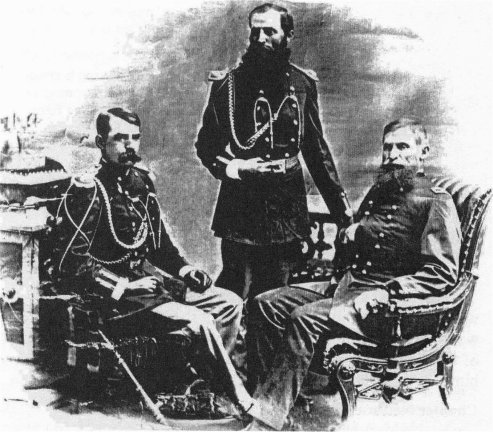
L-R: Second Lieutenant John G. Bourke (Third Cavalry
and Aide-de-camp to General Crook),
Azor H. Nickerson (General Crook's valiant captain
in the Indian Wars) and General George Crook, c1875.
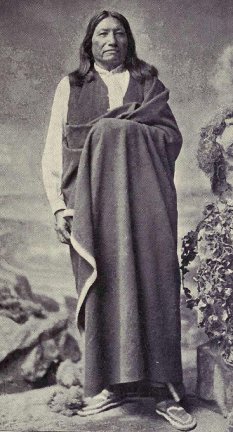
Spotted Tail
|
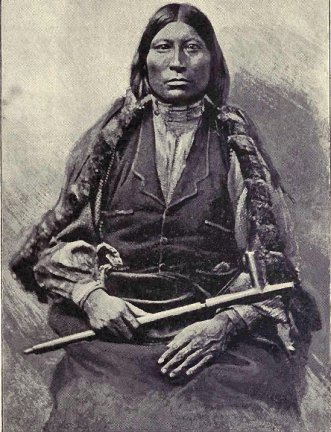
Sharp Nose
|
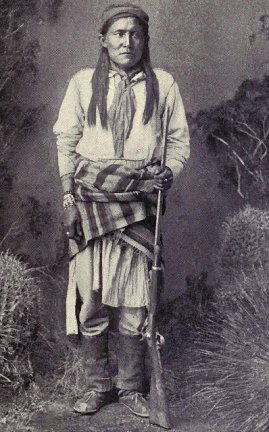
Chato
|
.
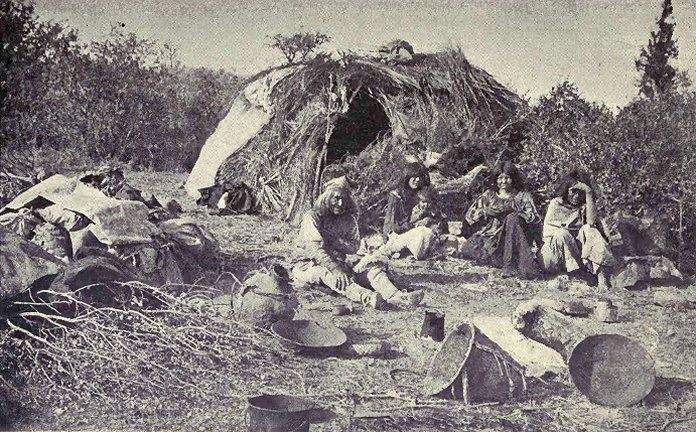
An Apache Rancheria
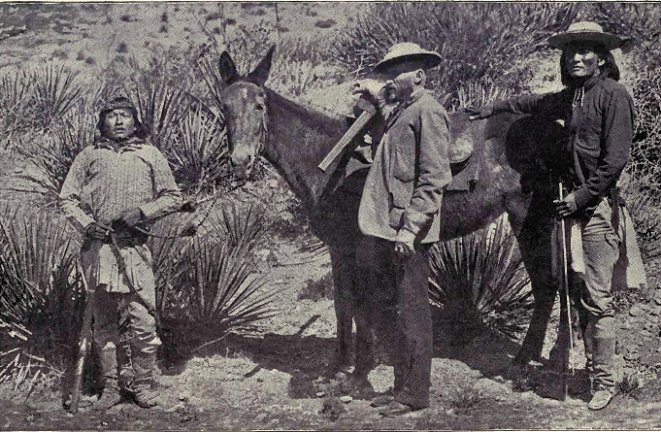
Captain Crook and the Friendly Apache Alchisay
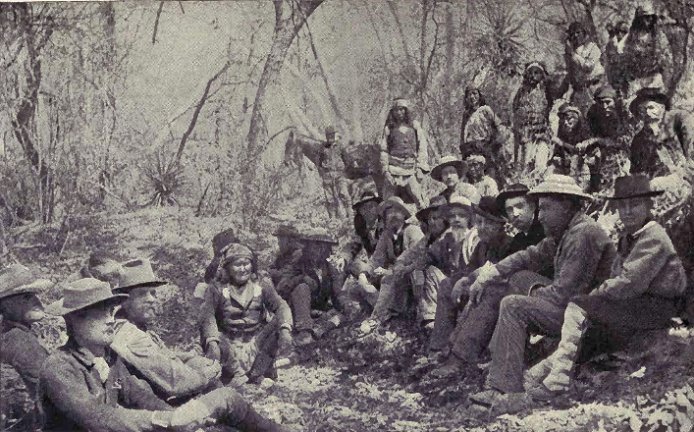
Conference Between General Crook and Geronimo

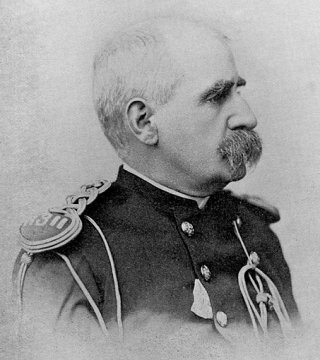
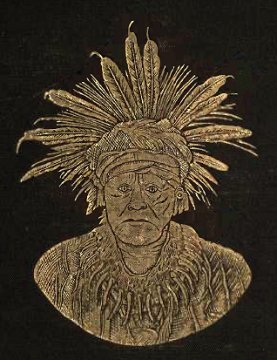
Captain John Gregory Bourke
The
Medicine Men of the Apache: eText
BOOK ILLUSTRATIONS
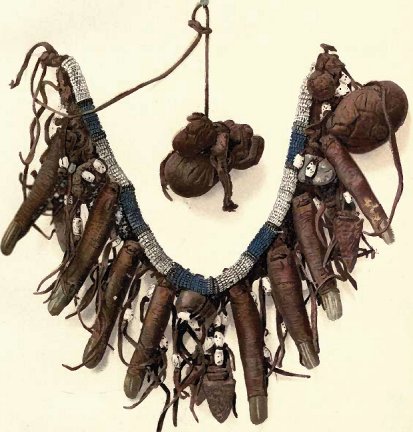
Necklace of Human Fingers
|
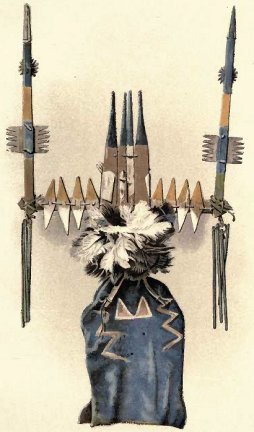
Apache Medicine Hat Used in Ghost Dance
|
Apache Medicine Shirts
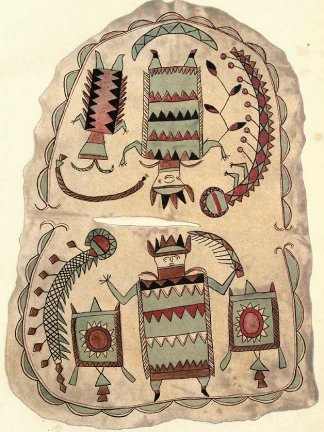
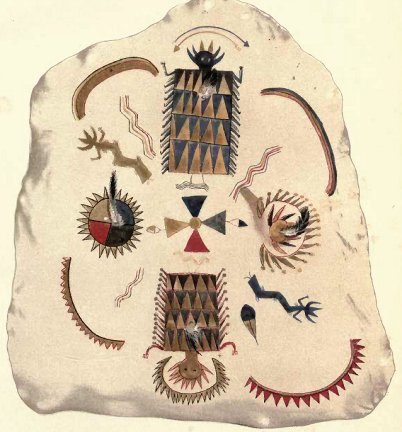
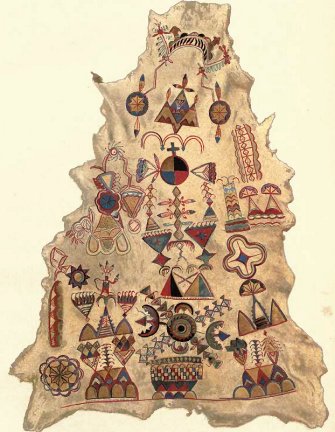
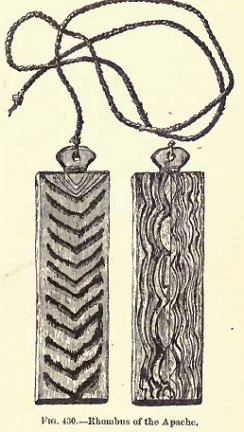
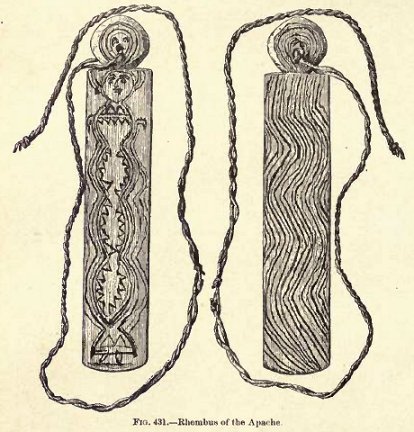
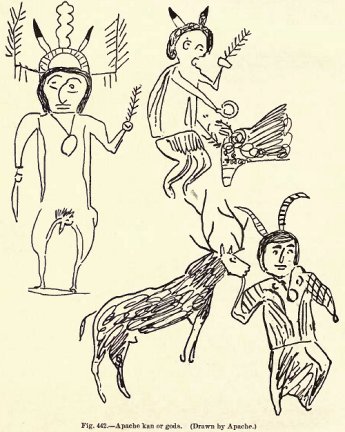
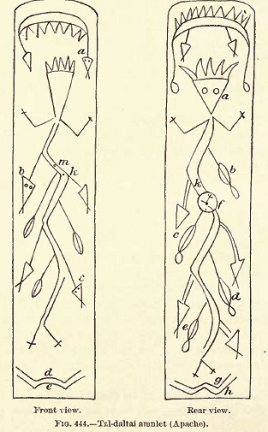
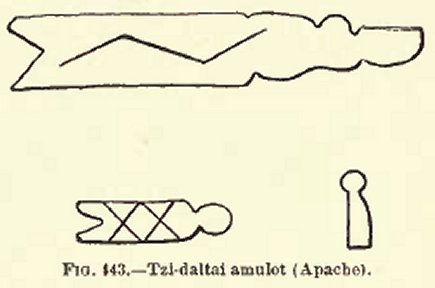
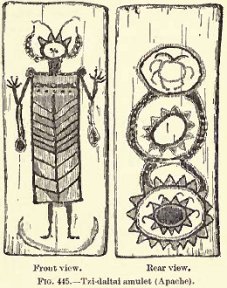
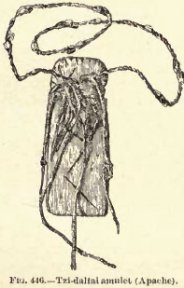
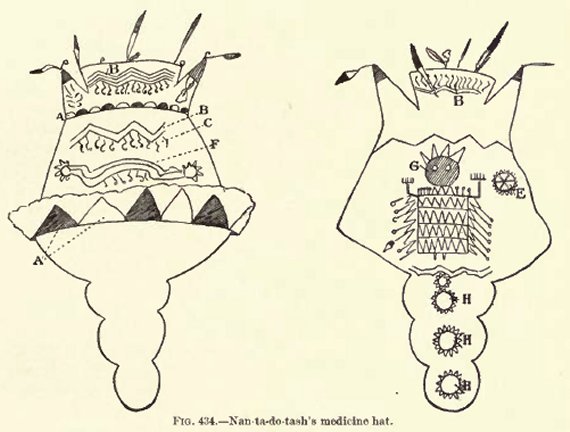
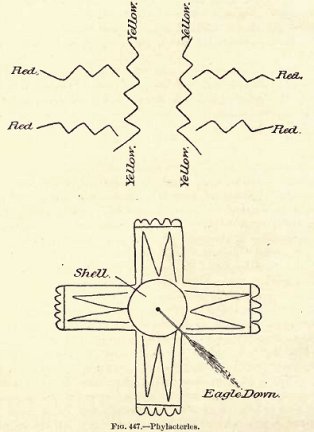
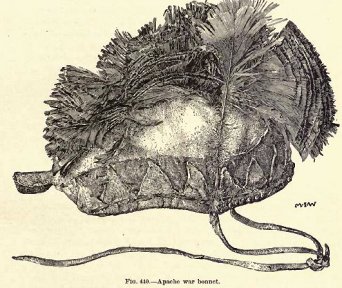
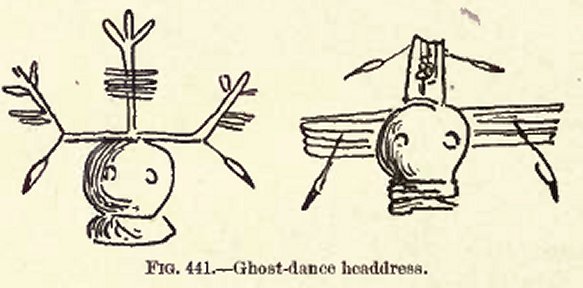
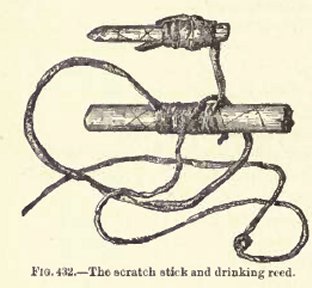
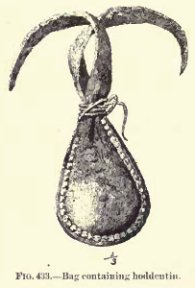
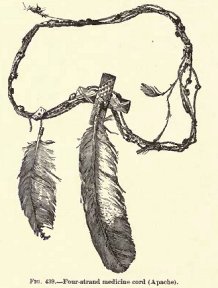
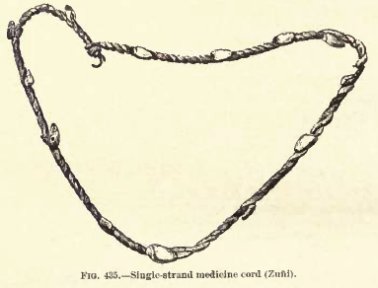
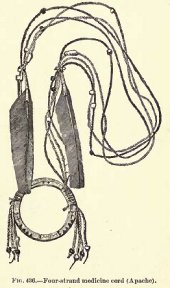
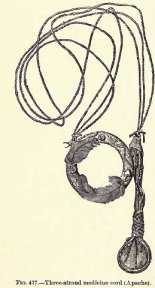
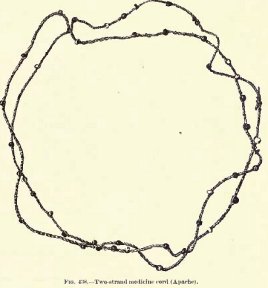

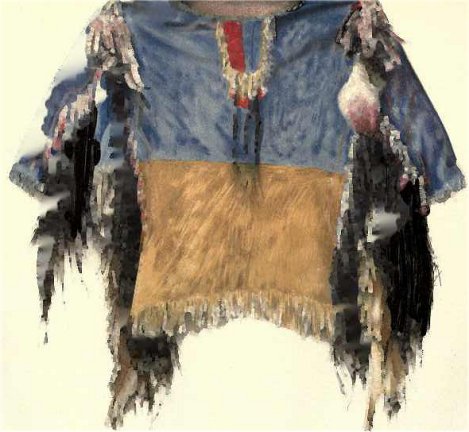
Scalp Shirt of the "Little Big Man"

ERBzine Refs
Bourke Books in ERB's
Personal Library
Apache Devil in ERBzine
Illustrated Bibliography
The War Chief Entry
in ERB Illustrated Bibliography
Bourke's Influences
on ERB's Apache Novels
Burroughs Bibliophiles
ERB's Influences for
the Apache Novels I
The Marvellous Country: Three Years in Arizona and
New Mexico, the Apache's Home by Samuel Woodworth Cozzens 1873
Thrilling Days in Army Life by General George.
A. Forthsyth 1900
Lives of Famous Indian Chiefs by Norman B. Wood
The Frontier Trail by Colonel Homer W. Wheeler
The Land of Poco Tiempo by Charles. F. Lummis
ERB's Influences for
the Apache Novels II
Geronimo's Story of His Life by S.M. Barrett,
1907
Trailing Geronimo: The Outbreak of the White Mountain
Apaches, 1881 - 1886 by Anton Mazzanovich
Life Among the Apaches by John Carey Cremony
Apache Medicine-Men by John G. Bourke
MICHIGAN MILITARY ACADEMY
OB's Scrapbook: Michigan
Military Academy I
OB's Scrapbook: Michigan
Military Academy II
Michigan Military Academy
Years: Gridiron Memories
ERB with Charles King
at
MMA I
ERB with Charles King
at MMA II
General Charles King / ERB Connection
ERB's Remarkable Summer
of '93: Columbian Exposition
eTEXTS
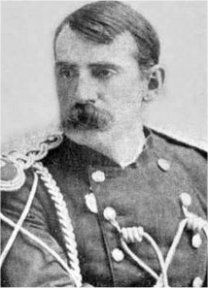
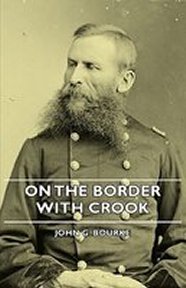
On the
Border With Crook
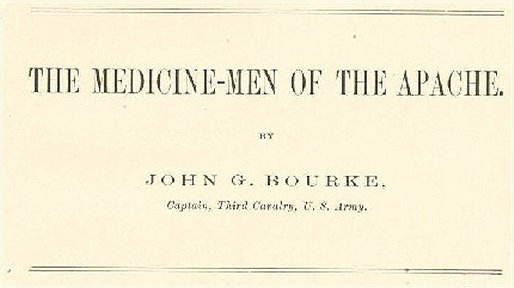
The
Medicine Men of the Apache: eText
Life
Among the Apaches by John Cremony: eText - html
www.erbzine.com/craft/lifeamongapaches_cremony.pdf
  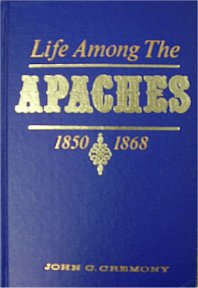
See Edgar Rice Burroughs
Personal Library: Shelf C5
Review Ref: www.archive.org
John
C. Cremony (1815-1879) met the Apaches first as an enemy but became
their greatest advocate. His opportunity to observe them closely was unique.
It may have been the only time near the peak of their powers that a white
man could have survived within their territory long enough to get to know
them. Cremony recognized their primitive virtues as well as their savage
flaws. He never idealized them but he admired and respected them as enemies
and eventually as friends. He was uniquely qualified by disposition to
do so and write about his experiences among the Apache people before guns
and government overwhelmed them. It seems unlikely that anything as accurate
has been written about the Apache character and way of life. His observations
confirm the extraordinary quality of their horsemanship, stealth, stamina,
and ferocity but Life Among the Apaches also tells more about their
private lives than everything else I’ve read combined.
Cremony’s accounts of his person experiences, conflicts
and close calls, were the stuff of action adventure worthy of an epic movie
but it is his insights into Apache beliefs and thought were most remarkable.
See Chapters XV and XX especially. This book should be regarded as an essential
reference for any new study of Apache history or anthropology. After Sibley’s
Confederate were defeated in New Mexico the California Union army volunteers
were assigned to New Mexico to protect the inhabitants from “Indian outrage.”
“What the Confederates failed to appropriate the Apaches had destroyed.”
The Apache and Navaho were suppressed and Cremony and the California cavalry
of which Cremony was a member were assigned guard duty at the Bosquo Rodondo
reservation in the Pecos region. It was there that he served the Apaches
so well as their friend and intermediary saving them from starvation and
constant dangerous misunderstanding. He lived in their midst and studied
them. He compiled “the only vocabulary of the Apache language in existences.”
The Apache language included a fully adequate decimal system. His commanding
officer General Carleton “sent the manuscript to the Smithsonian Institution.”
His descriptions of the Bosquo Rodondo as it was then fills one with painful
regret the passing of so much wild beauty.
I was over half way through The Timeless Land when
I started
Life Among the Apaches. The differences between Australian
aborigines and Apaches seem at least as significant as the similarities.
White men were new to the coastal Australian aborigines in the 1770s and
they still trusted them. The desert Apaches first encountered white men
hundreds of years before and no longer trusted them in the 1830s. By 1840
the aborigines no longer trusted them either. The aborigines were gentler
people than the Apaches. Their costal environment was much friendlier than
the Apaches’ desert where survival was always in question; that difference
may also have contributed something to the higher level of hostility between
the Apaches and invading strangers. All primitive people love bright color
and displays of status as evidence of fitness. Where life is hardest is
where the least attention is given to reciprocity; altruism is less likely
than revenge. Cremony wrote “… although one may feel wholly guiltless of
act or intention against the savages, he is held strictly by them for the
acts and intentions of his predecessors.” “In the desire to do them good
we have done them the most harm. In the hope of excising their savage defect
we have inoculated them with the most terrible vices.”
If the Apaches had been able to turn from raiding to trading
and moved beyond tribal rivalry and cooperation to effective government
there would be an Apache nation between the USA and Mexico today. If the
“five civilized tribes” of the Southeast … If the Iroquois… If the Sioux…
|
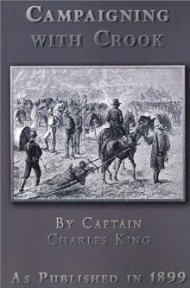
Campaigning
with Crook by Charles King: eText
ERB:
The War Years
1896-1897 at Fort Grant with
the U.S. 7th Cavalry
OFF-SITE WEB REFS
John
Gregory Bourke: Wikipedia
John
Bourke's Story of the Battle of the Rosebud
The
Wonderful, Horrible Life of Captain Bourke's Scatalogic Rites of All Nations

EDGAR RICE BURROUGHS AND THE
APACHE





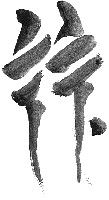
BILL
HILLMAN
Visit
our thousands of other sites at:
BILL
and SUE-ON HILLMAN ECLECTIC STUDIO
ERB
Text, ERB Images and Tarzan® are ©Edgar Rice Burroughs, Inc.-
All Rights Reserved.
All
Original Work ©1996-2011/2018 by Bill Hillman and/or Contributing
Authors/Owners
No
part of this web site may be reproduced without permission from the respective
owners.


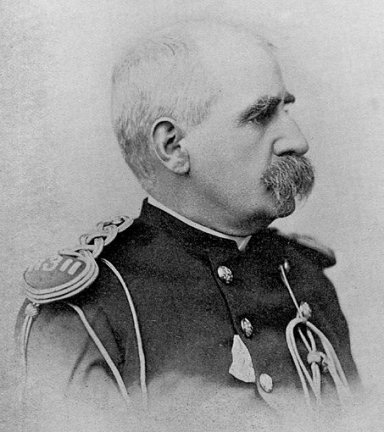
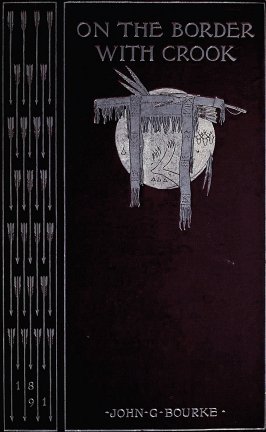
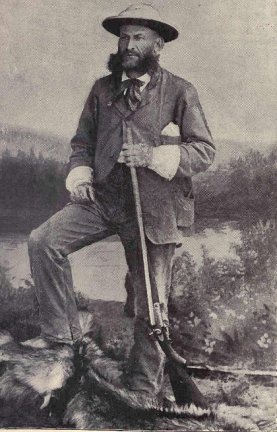







![]()



























![]()




![]()
![]()

![]()